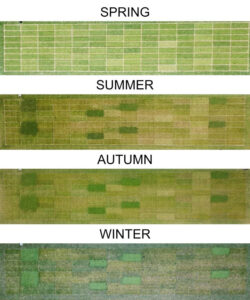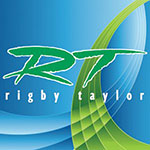Clover generates its own nitrogen, making it more tolerant to drought
Related Articles
As drought restrictions came into force this summer, it was hard not to notice that many local authority sports grounds, gardens and public spaces had fallen victim to heat, particularly in terms of visual merit. However, you may have noticed that among the brown and baron land, patches of green remained – clover – which, as DLF explains, generates its own nitrogen from the atmosphere making it one of the most tolerant varieties to drought and other high stress environments.
Alongside more frequent periods of sustained hot and dry weather, the rise in fertiliser prices is driving seed producers to look for varieties that can be maintained with a more sustainable nitrogen programme. The unique root nodules on clover are formed by the Rhizobium bacteria, capable of converting atmospheric nitrogen into a natural fertiliser available for the clover as well as the companion grasses. Sourced in this way, the supply will also be gradual and ongoing, contributing to more sustained growth when compared to the ‘flush’ that can occur when larger quantities of nitrogen are applied as part of a managed feeding programme.
Microclover is a special bred dwarf white clover which joins in well with other turf species. The smaller leaves and lower growth habit contribute to a dense, uniform appearance as well as delivering strong wear qualities and heat/drought tolerance. All of this means that the inclusion of Microclover can result in a sward that suffers from less weed and disease invasion, and one that requires less water, fertiliser and ultimately cost, to sustain. In trials conducted by the STRI, Microclover is proven to deliver enhanced coverage and improved colour when compared to pure grass swards.
Masterline’s PM82 Microclover Sport mixture from DLF, has been specifically blended with these benefits in mind. PM82 improves turf quality whilst being kinder to the environment thanks to its reduced requirements for herbicide and fertiliser. Alongside Microclover, PM82 also features 40 percent Double 4turf® tetraploid perennial ryegrass. The deeper rooting nature of DLF’s 4turf® varieties means it can better withstand drought-like conditions and remains green even when the plant above ground is starved of water.


























